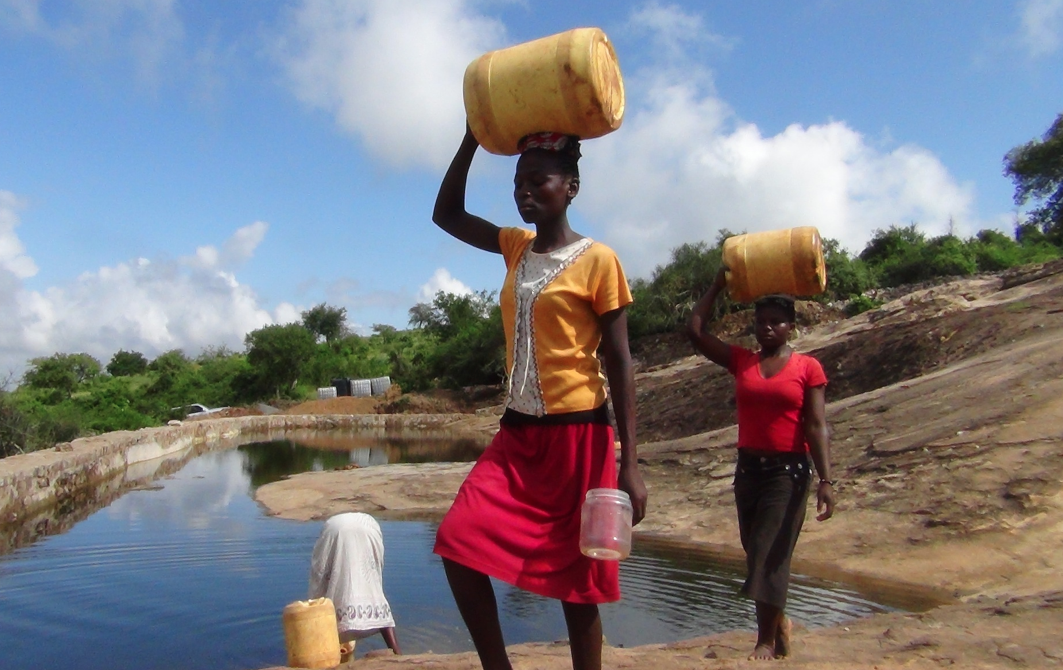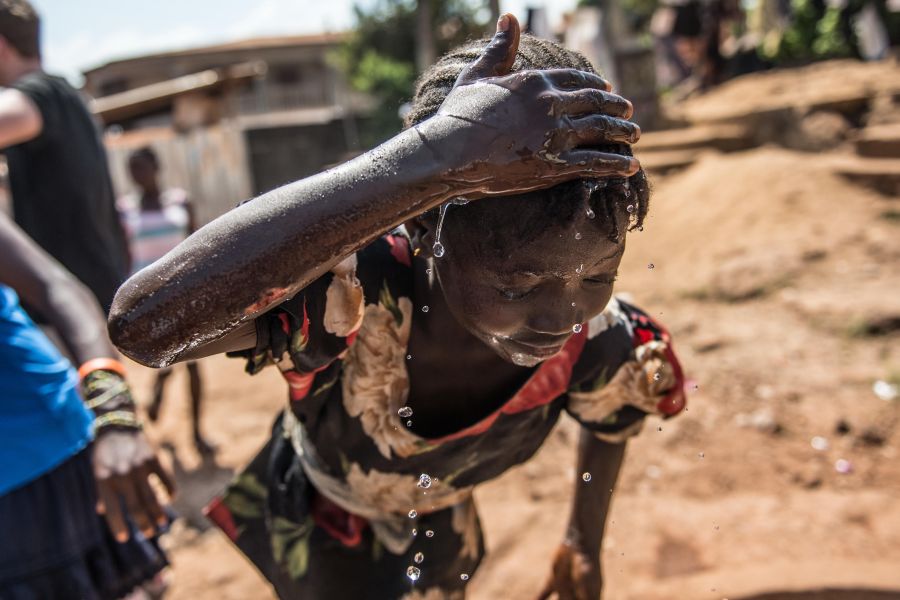It is break time and a group of young girls in their school uniforms have just reached the pond where many others have also come to fill their buckets with water. Since the class hours are not over yet, they fill their containers, and then places them on their heads for the walk back to school.
“We don’t have any source of water at school so we are supposed to fetch water in the nearby ponds or sometimes trek for hours to get water from the river so that we can use it in toilets or to clean the school, explains Mariam, a Standard Six pupil.
Fetching water during and after class hours has been part of life for many young girls such as Mariam and her fellow pupils in Iramba region.
For example, Subira Hassan, a 19-year-old mother of one, would walk lots of kilometres every day to get water and wait on queue for about two to three hours. When she finally gets home, her sick mother, her one-year-old daughter and her two younger siblings will be waiting for her to prepare them some meal.
“Water is a problem here, so we walk long distance to the river,” explains Subira who says she was forced to quit school because she was always helping her sick mother to take care of her younger siblings and with the house chores.

‘It is was always physically demanding and time consuming responsibility, as a pupil back then I had little time to concentrate on my studies since I was always out there looking for water, left with little time to go through my books because I was always tired from the long walks, explains Subira.
Subira’ s case represents a number of challenges that many young girls face because of acute water shortage both at home and school environment and the negative impact in has in their education. Stalato Japhet, a 15-year-old student from Ushora Secondary School says water has been a big problem particularly for girls because it is considered a job for girls. She says the situation is worse when they are at school.
“In our school there is place where we fetch water but it is not for free, they sell it from 50 shillings up to 200 shillings depending on the size of your container. However not all parents can afford to give their children this amount every day,” explains Stalato.
“This situation has placed some girls to fall into temptations from men who offer them money so that they can buy water needed in school. Also because of a long distance, it’s not possible to walk with water all the way from home to school, ” she says.
According to UNICEF, at any one time, close to half of all people in developing countries are suffering from health problems caused by poor water and sanitation.
Together, unclean water and poor sanitation are the world’s second biggest killer of children. It has been calculated that 443 million school days are lost each year to water-related illness.
Mary Israel, 19, a Form Four Student from the same school was sometimes forced to skip classes during her monthly periods because of shortage of water at her school. According to her, the toilets are available and in good condition however because the unavailability of clean water, she and other girls are sometimes forced to skip classes because they can’t keep themselves clean while in school during that time.
‘The toilets are there but we find it more safe to stay at home until our monthly periods are over instead of coming to school while there is no water to clean ourselves when we want to change the pads. Even the water we buy isn’t enough to meet our daily demands,’ she noted.
Iddi Athumani, Ushora Secondary School Deputy headmaster admitted to the challenge facing student’s particularly girls especially when it comes to shortage of water saying that it becomes uncomfortable for them during their monthly periods.
As of 2006, one third of all nations suffered from clean water scarcity, but Sub-Saharan Africa had the largest number of water-stressed countries of any other place on the planet and of an estimated 800 million people who live in Africa, 300 million live in a water stressed environment according to UNICEF.
Julius Kiumu, Urughu ward executive officer said the situation of water hasn’t been favourable and consistent as most people depends on water ponds and dams .He said there has been a number of wells but most of them currently aren’t working
“This ward for instance has almost 4000 families and only 5 per cent have an access to reliable water meaning those who can at least spend less than 30 minutes to get water, the rest spends up to two hours finding water and women and girls are the ones bearing the responsibility which has direct impact on their educations. Like what the policy says, a woman should be able to access water within 100 meters, it’s high time those who are responsible allocate the resources,” he said.
Iramba District Executive Director Linno Mwageni said most school s; both primary and secondary have benefited from SEMA and WaterAid hygiene projects which have built toilets in schools and ensured that girls have good, clean and friendly environment especially when it comes to their monthly periods.
“We understand that girls have special needs and have done our best to ensure they get a clean and safe place to change. This has helped to keep them in school and boost their attendance because they have good toilets,” he said.
Reports show that the average distance that women in Africa and Asia walk to collect water is 6 kilometres. People lacking access to improved water in developing countries consume far less, partly because they have to carry it over long distances and water is heavy.
For the 884 million people or so people in the world who live more than 1 kilometre from a water source, water use is often less than 5 litres a day of unsafe water.

According to findings presented at the 2012 Conference on “Water Scarcity in Africa: Issues and Challenges”, it is estimated that by 2030, 75 million to 250 million people in Africa will be living in areas of high water stress, which will likely displace anywhere between 24 million and 700 million people as conditions become increasingly unlivable.
UN says water scarcity affects more than 40 per cent of the global population and is projected to rise. It is estimated that 783 million people do not have access to clean water and over 1.7 billion people are currently living in river basins where water use exceeds recharge.
On 28 July 2010, through Resolution 64/292, the United Nations General Assembly explicitly recognized the human right to water and sanitation and acknowledged that clean drinking water and sanitation are essential to the realisation of all human rights.
The Resolution calls upon States and international organisations to provide financial resources, help capacity-building and technology transfer to help countries, in particular developing countries, to provide safe, clean, accessible and affordable drinking water and sanitation for all.

